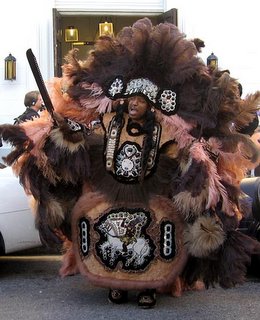Tom Farley worries about footprints. Not just the need to shrink the footprint--the city-limits area--of post-Katrina New Orleans but also the missing pitter-patter of children's footsteps on playgrounds and city sidewalks.
Farley is professor and chair of community health at Tulane's School of Public Health and Tropical Medicine. On Wednesday (Feb. 22) he presented a seminar, "Opportunities to Rebuild Healthy Neighborhoods in New Orleans," as part of the Prevention Research Center seminar series. Farley directs the center, which receives funding from the U.S. Centers for Disease Control and Prevention and has as its mission the promotion of healthy neighborhoods and the combating of obesity in the city of New Orleans.
read more from Tulane's New Wave


